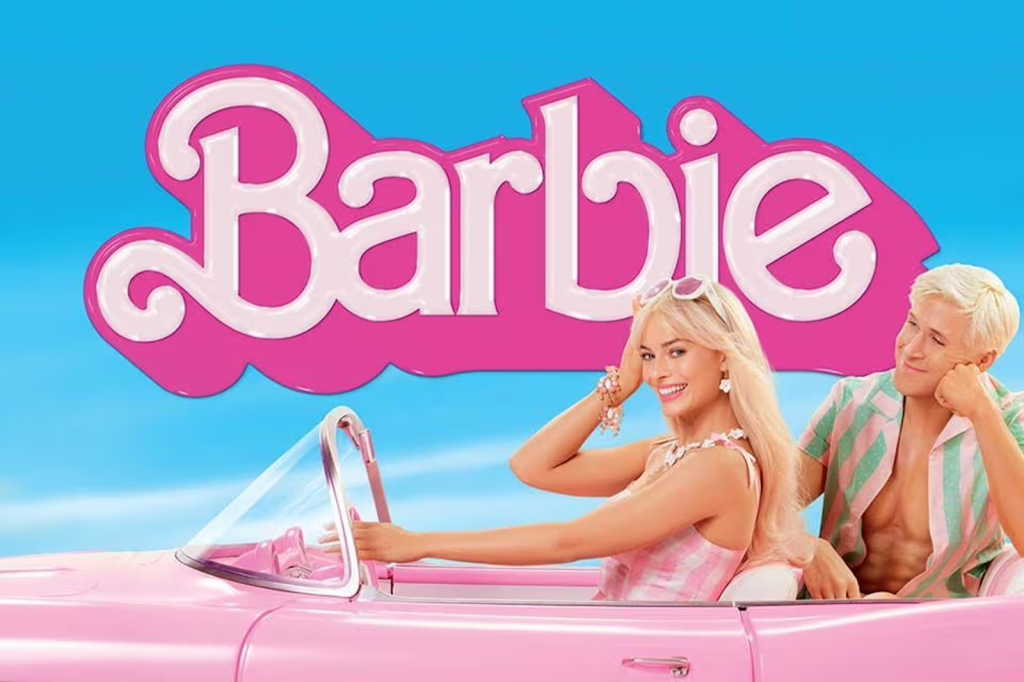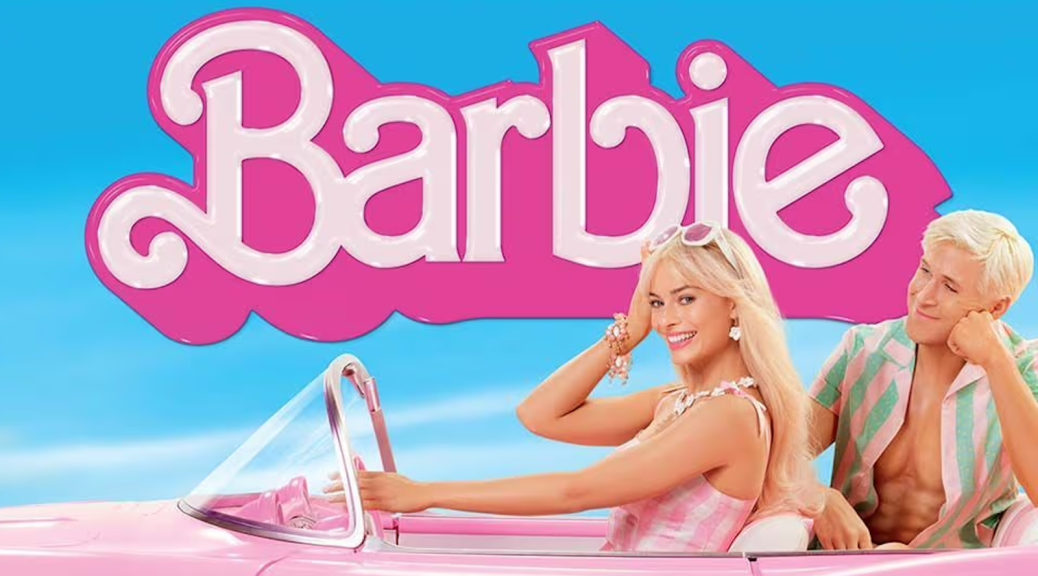
Barbie 2023: A Kenundrum of Gender, Capitalism, and Coming-of-Age Revelations
‘Barbie,’ at its core, delves into the intricate dynamics of gender identity and societal expectations, particularly through its’ central characters- Barbie and Ken. The film grapples with the notion that masculinity, unlike femininity, is often defined in negation, a constant proving of oneself to society, other men, and women. The plot beautifully weaves a narrative where Ken’s struggle to cover up his perceived lack and Barbie’s journey toward self-realization serve as metaphors for broader societal challenges.
The film subtly addresses feminist ideals but, as anticipated by many, falls prey to the constraints of capitalistic demands that inevitably come along with working with a prominent piece of commercial property owned by a major corporation. This particular sentiment was a concern expressed by both director Greta Gerwig, known for critically lauded films like ‘Ladybird’ (2017) and ‘Little Women’ (2019), and actress/producer Margot Robbie who said “we had to be upfront… we wanted to honour the brand but not shy away from the problematic parts…otherwise, its not a movie we’re interested in making.” While ‘Barbie’ attempts to gesture towards feminist concepts, the film’s need for broad appeal arguably dilutes its potential impact, as it can’t seem to fully articulate a version of feminism that is truly threatening to both patriarchy and capitalism.
Despite this, part of the film’s success is its ability to provide the audience with a sufficient understanding of feminism’s multifaceted nature without being overly theoretical or heavy handed. Therefore, it may be beneficial that ‘Barbie’ isn’t some indie movie assuming a pretentious pseudo-philosophical stance, but is itself a piece of commercial property that critiques ideology from within. Nonetheless, Gerwig maintains her indie sensibility, enabling the film to transcend being merely pro-Mattel propaganda and succeeding as an aesthetic work.
On an especially positive note, framing ‘Barbie’ as a coming-of-age story injects fresh life into the narrative. Barbie’s journey from stereotypical representations to self-realization mirrors a rite of passage into womanhood. Ken, too, grapples with identity initially tied to shallow ideals, reflecting the challenges boys face in defining their path to manhood in a world where embodying healthy forms of masculinity seems increasingly difficult. Amidst this exploration, Barbie attempts to seek answers from Mattel, only to discover that corporations can’t provide the meaningful answers she seeks (shocker)—a revelation that feels particularly pertinent for modern viewers.
Another notable aspect of the film is Jacqueline Durran’s phenomenal costume design; the characters’ style transformation reflecting their internal growth. Initially, Barbie is always dressing for an event, a task. And Ken dresses in relation to Barbie. If it’s Malibu barbie, he’s Malibu Ken. But as the movie progresses, Ken sees ways of dressing in the real world that accord with him and the version of himself, he aspires to be (even if this version isn’t truly his ultimate ideal- it seldom is when you’re growing up). Meanwhile, Barbie’s outfits become less tied to a specific function and more human, signifying a move towards self-acceptance, detached from stereotypical representations.
Through Ryan Gosling’s superb performance, Ken emerges as a compelling character, sympathetic and comical even at his worst. The film’s representation of patriarchy is potent, emphasizing the absence of a governmental structure in the Ken world as a commentary on the intangible yet pervasive nature of patriarchal ideals as well as ideas’ ability to structure social reality. In its reflection of societal norms, ‘Barbie’ raises questions about the pursuit of equality, mirroring real-world scenarios where women may be represented up to a point, yet it still feels as though true equality remains elusive. The ending, mirroring the unresolved state of societal issues, prompts contemplation on the gap between ideals and reality. Barbie’s evolution into a true subject, marked by her possession of a reproductive organ, is a poignant symbol of liberation. The film cleverly subverts the objectification of Barbie by presenting her reproductive organ not as a fetishized ideal but as a brute marker of her newfound subjectivity.
Arguably, ‘Barbie’s’ greatest triumph has little to do with the film itself and everything to do with its marketing campaign, which effectively convinced various different groups that the movie was targeted at them — from adult women to young girls. However, after watching the trailer, it seems odd to me that any parent would conclude the film was explicitly targeting children, although Kubrick’s ‘2001: A Space Odyssey’ is famously every 9-year-old girl’s favourite film.
Moreover, the cultural phenomenon that was ‘Barbenheimer,’ pertaining to the simultaneous release of ‘Barbie’ and Christopher Nolan’s ‘Oppenheimer,’ achieved high levels of monocultural saturation at a time where cultural fragmentation has never been higher. This instance of counterprogramming played on the bizarre contrast between the fantastical, comedic, light-hearted nature of ‘Barbie,’ and Oppenheimer as an intense, biographical thriller, to great success. Barbie’s marketing, like the film itself, leaned heavily into traditionally feminine aesthetics, and its success points to the dearth of movies specifically targeted at female audiences- a lack which Oppenheimer’s contrasting marketing only accentuates. Cinema has long favoured male-centric narratives, and in turn, has underestimated the commercial viability of stories centring on women. It’s not merely about creating films with prominent female characters but crafting narratives that depart from stereotypes and offer nuanced views of the women depicted (arguably a failure of Oppenheimer, but that’s a topic for a different review).
In conclusion, ‘Barbie,’ while not without its flaws, successfully engages with complex gender dynamics and societal expectations. Its narrative depth, coupled with nuanced character development and striking visuals, provides a thought-provoking and thoroughly enjoyable experience.

